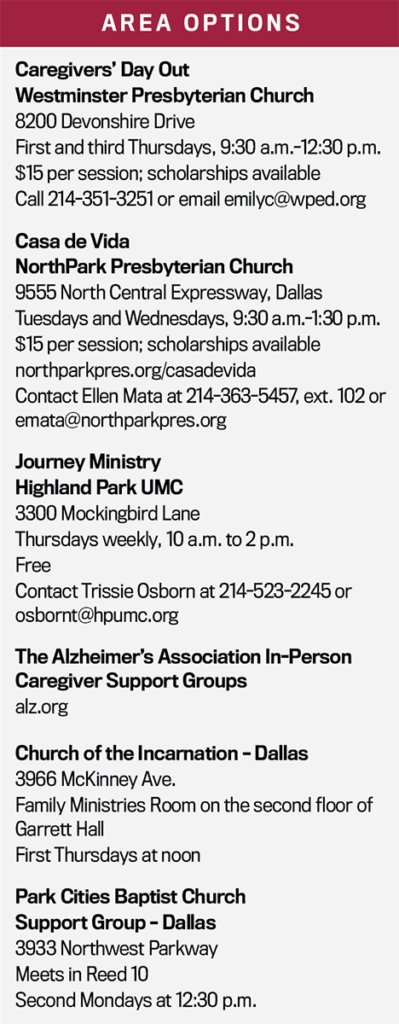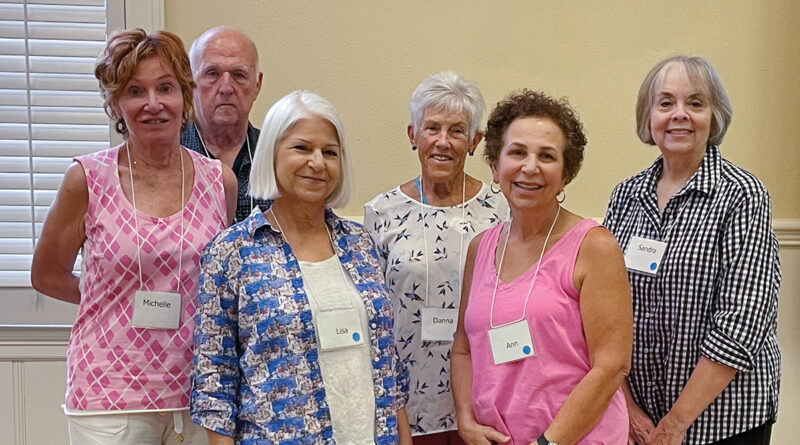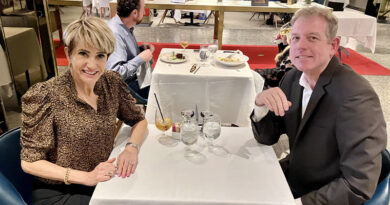Give Caregivers a Break
Respite ministries help by offering dementia patients activities
For those navigating the diagnosis of the early stages of dementia or Alzheimer’s Disease for a family member still living at home, there is a need to come up to the surface just to catch a breath.
However, the caregiver might not know where to turn for respite from the day-to-day stress and responsibilities.
Ann Rosenzweig understands. Her mother was diagnosed with Alzheimer’s in 2004.
“My mom lived a very full life,” Rosenzweig said. “She was one of the smartest people I have ever known, but we did not know what was needed to keep her from declining.”
Ann’s discoveries for her mother led her to form a Caregiver’s Day Out at Westminster Presbyterian Church.
On the first and third Thursdays of each month, trained volunteers gather to provide a safe and stimulating environment to give the caregivers a break.

“We serve those who don’t have access to this elsewhere,” she explained. “We currently have 10 volunteers and five participants who have early to mid-stage dementia.”
The morning always includes music.
“Music gets to their core,” Rosenzweig explained. “It helps them move. People who can’t complete a sentence can sing every word to a song.”
A recent Thursday morning began with Mike Frankel — think Dick VanDyke in Mary Poppins — beating the tambourine with his feet and squeezing out songs from the 1950s and 1960 on his accordion.
Carolyn A. Dobson, a neurologic music therapist with board certification in music therapy and as an advanced activity professional, has also visited and demonstrated how the rhythm in music stimulates the brain to respond and improve cognitive function.
To support physical health, Allison Atwood from the Moody Family YMCA in the Park Cities brought her high energy, smiles, and fun to the group with chair exercises.
“It’s an easy activity for people to join even if they are late because it’s not always easy to get someone up and out the door,” Rosenzweig said.
Most mornings also include a fun activity or craft.
“We see a vast spectrum of what people are able to do, so it’s a challenge to keep the individual engaged at their level,” Rosenzweig added. “Pairing an individual with a volunteer helps. For example, we usually end our mornings with bingo. One lady who had not been receiving any regular socialization did not know how to play. Now she can play by herself.”
The baby of her own family, Rosenzweig, has always had a place in her heart for older adults. Caring for the elderly has grown to be a passion for her.
“It brings me a lot of joy to work with these individuals,” she said. “The volunteers who are a part of this program also find it to be a great joy. I am grateful to Westminster Presbyterian Church for what they are doing providing this outreach to the community.”









